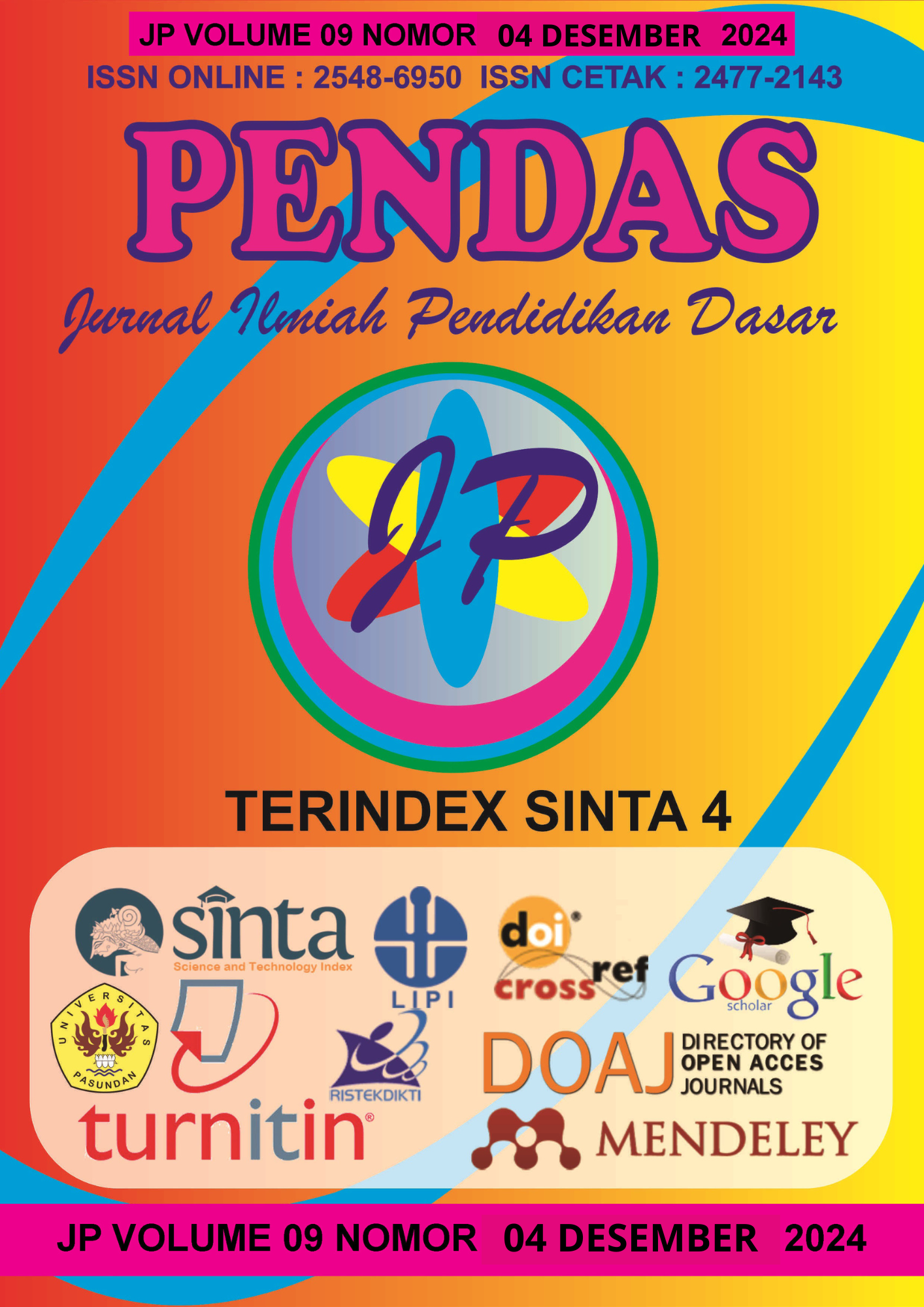EFEKTIVITAS MODEL TUTOR SEBAYA DALAM MENINGKATKAN MAHARAH QIRA'AH: TINJAUAN LITERATUR SISTEMATIS
Keywords:
Peer Tutoring, Cooperative Learning, Maharah Qira'ah, Arabic Language Education, Elementary EducationAbstract
The peer tutoring cooperative learning model has been widely applied to enhance reading skills (maharah qira'ah) in Arabic language education. This study aims to evaluate the effectiveness, challenges, and opportunities of this model through a systematic literature review. Data were collected from 12 journal articles published between 2020 and 2024, analyzed using a thematic synthesis approach. The results reveal that peer tutoring significantly improves students’ reading fluency, pronunciation accuracy, and text comprehension. These improvements are influenced by active interactions between tutors and students, as well as a supportive learning environment. However, challenges such as difficulty in selecting competent tutors and unbalanced group dynamics remain significant barriers to implementation. Additionally, the study found that students involved in peer tutoring demonstrated higher learning motivation compared to those in conventional methods. The novelty of this research lies in its focus on elementary education (madrasah ibtidaiyah) and oral reading skills (qiroah jahriyah), which are rarely explored in previous studies. This study concludes that peer tutoring is an effective strategy to enhance students’ maharah qira'ah, particularly at the elementary level. Recommendations are provided for developing more structured tutor training and integrating technology to support this model in the future.
Downloads
References
Abdullah, M. (2023). Enhancing student engagement in Arabic reading through cooperative learning strategies. Journal of Educational Studies, 45(3), 189-205.
Diana, S., Hasanah, L., & Rofiah, N. (2023). Peer tutoring in Arabic language learning: A case study in higher education. International Journal of Language and Education, 12(2), 45-58.
Djamarah, S. B. (2022). Metode pengajaran bahasa: Teori dan praktik. Jakarta: PT Rineka Cipta.
Gillies, R. M. (2022). Cooperative learning: Review of research and practice. Educational Psychology Review, 34(1), 123-145.
Hasanah, L. (2023). Improving pronunciation accuracy through peer tutoring in Arabic language classes. Language Learning Journal, 51(1), 87-102.
Johnson, D. W., & Johnson, R. T. (2020). Cooperative learning and social interdependence theory. Theory into Practice, 59(2), 87-95.
Khan, A. R. (2022). Cognitive aspects of Arabic language reading comprehension among non-native speakers. Journal of Cognitive Linguistics, 14(3), 212-230.
Lutfi, A., Wahyuni, R., & Abdullah, M. (2022). The role of peer tutoring in enhancing reading fluency among high school students. Educational Research International, 10(4), 145-162.
Rofiah, N., & Syakur, M. A. (2023). Overcoming phonetic challenges in Arabic through cooperative learning. Arab World English Journal, 14(1), 78-95.
Slavin, R. E. (2021). Educational psychology: Theory and practice (12th ed.). New York: Pearson Education.
Wahyuni, R., Abdullah, M., & Hasanah, L. (2023). Addressing reading anxiety through cooperative learning models in Islamic schools. Journal of Islamic Education Research, 8(3), 67-80.
Wahid, A., & Rahmat, F. (2021). The challenges of Arabic language teaching in Indonesian schools: A systematic review. Indonesian Journal of Educational Research, 7(2), 45-59.
Downloads
Published
Issue
Section
License
Copyright (c) 2024 Pendas : Jurnal Ilmiah Pendidikan Dasar

This work is licensed under a Creative Commons Attribution 4.0 International License.














































